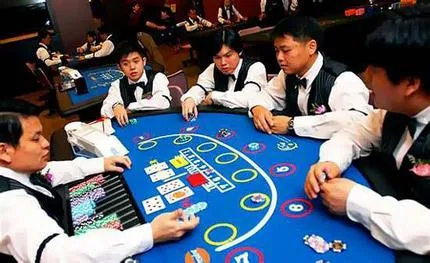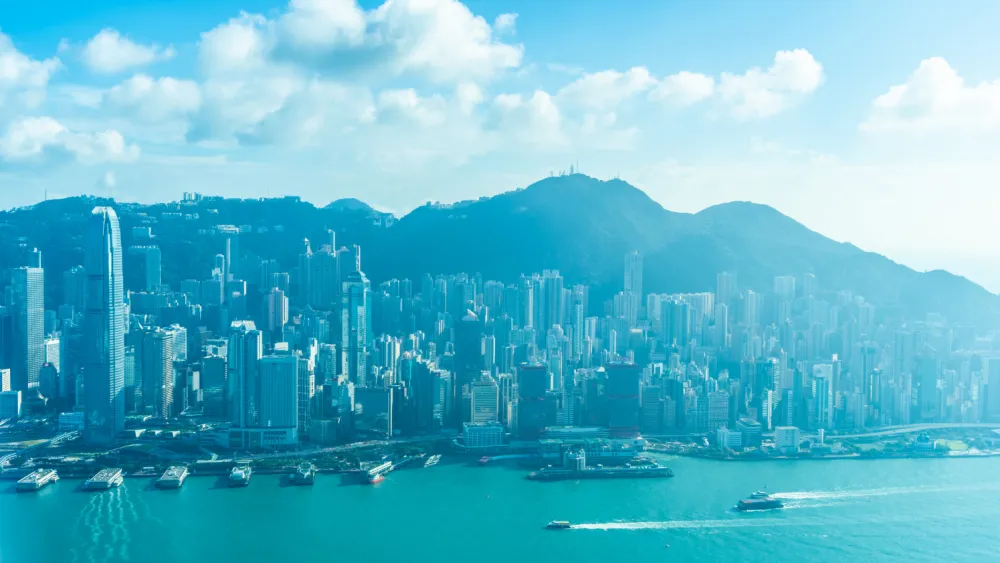
Asia-Pac casino gaming to become the global market leader by end-2015: Fitch
But outlook for Macau is bleak.
Fitch Ratings expects casinos in Macau, Australia, Singapore and Malaysia to maintain their credit profiles. The established casinos have completed most of their expansionary capex, and the casino gaming market overall is projected to expand, it said. "Market shares and profitability of existing operators will potentially be impacted by the new casinos to come on line, but not to extent that credit profiles are materially impaired."
Fitch believes that gaming in the Asia-Pacific region is poised to continue significant near-term revenue growth. "This is supported by the burgeoning middle class and the increase in high-net-worth individuals; a mostly stable macroeconomic environment compared with the US and Europe; the high propensity of consumers in the region to gamble and the likelihood of legalisation/expansion of new jurisdictions."
According to Fitch, the Singapore market experienced impressive growth after the initial success of Resorts World Sentosa (RWS) and Marina Bay Sands (MBS), but regulatory changes are likely to lead to a slowdown there. Australia will experience high-single-digit growth fuelled by investment in VIP facilities by operators. Malaysia is likely to benefit from regulatory change afoot in Singapore while Macau should grow in line with China’s GDP.
Fitch projects the casino gaming market in the Asia-Pacific region to become the global market leader by end-2015, worth roughly USD80bn. "Greater affordability among the region’s consumers will drive the growth. Likewise, there is growing significance of increased tourism, both in terms of the number of visitors and US dollar receipts – vital for some of the countries in the region."
Fitch sees gaming Centres to increase moving forward. "Singapore’s success with RWS and MBS – which is boosting tourism and earning additional tax revenues through the levy of gaming tax – has prompted Japan, Taiwan, Vietnam, Cambodia and other countries to consider expanding or setting-up casinos."
Here's what it say about Macau:
Fitch forecasts meaningful growth in both Macau’s gaming and non-gaming revenues and for a rise from the record 28 million visitors in 2011. This should result from a variety of factors, including the movement of Chinese citizens to urban centres in China, the introduction of new transportation infrastructure and the imminent increase in hotel room inventory.
Macau is the largest gaming market in the world, and the only location in China to offer legalised casino gaming. Annual gaming revenues reached USD33.6bn in 2011, according to Macau government statistics, a 42.2% jump from 2010.
The increase in the mass gaming market has led to a significant increase in slot machine play, which the agency expects to continue. Fitch expects revenue growth to continue to slow down in 2013, with a base-case outlook of 8% growth, down from roughly 12%-13% in 2012. Gaming revenue growth came down to the single-digit range in mid-2012 as the Chinese economy decelerated at a rate faster than Fitch’s expectations. A partial smoking ban in Macau is scheduled to be implemented, which will constrain revenue growth – and there has also been discussion of revising the smoking regulations to become a full ban.
The slowdown in 2012 was largely due to the high-end, VIP baccarat segment, which accounts for about 70% of gaming revenue in Macau. Credit conditions tightened in China in late 2011/early 2012, and it took some time to feed through to gaming. Credit is provided largely by VIP junket operators, which, in turn look mostly to informal credit channels for funding. By mid- 2012, junkets had become more reluctant to lend to VIP player agents (agents in turn lend
directly to players). But credit conditions have stabilised over H212. VIP segment revenues have been flat to slightly down (single-digits) since May 2012, while the mass market continued to grow in the double-digit range. VIP accounts for 70% of revenue, but does not make up that large a percentage of the profit – since the operators pay significant commissions to junkets that bring the VIP costumers to the operators.
Continued infrastructure development – supporting the mass-market segment and a further ramp-up of LVS’s Cotai Central – should propel revenue growth of roughly 8% in 2013, which implies low-single-digit VIP revenue growth and roughly 20% mass market revenue growth.
Longer term, Fitch expects Macau’s gaming revenue to grow at a similar rate to China’s GDP growth – or higher. This is supported mainly by Macau’s low penetration among Chinese nationals eligible to obtain visas to Macau, and growth in transportation and immigration-processing infrastructure in and around Macau.
The mass market should continue to grow faster than the VIP segment over the next few years, supported by numerous infrastructure projects as well as the potential for further development of Henqin. This dynamic should benefit Sands China (Las Vegas Sands Corp), as its business model is weighted more toward the mass market.
Sands’ Cotai Central, which opened in April 2012, will be the last major supply addition for the next few years due to the government-imposed cap on tables through 2013. Beyond 2013, supply growth should be constrained, as the government has indicated it is likely to limit table growth to an annual 3%. This appears to reflect the authorities' desire to manage Macau’s growth and overheating risks through the supply side rather than through travel restrictions on the demand side, which bodes well for the profitability of existing casino operators.
The next wave of Macau supply is slowly coming into focus. The centre of gravity will continue to shift from the peninsula to Cotai, as all six concessionaires are seeking to develop multi-billion dollar properties on Cotai that are expected to come on line starting mid- to late-2015.
The primary risk to Macau-centric operators is that Korea, Japan, and Taiwan could provide credible competition if they legalise gambling, at a time when the Macau projects are being developed. But Fitch believes the broader south-east Asia market is deep enough to absorb some additional market capacity without a significant negative impact on Macau. That said, new market development is the most important dynamic to monitor in light of the amount of supply that could enter the Macau market between 2015-2017.



















 Advertise
Advertise









